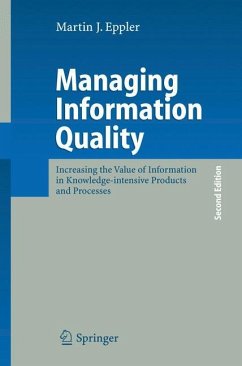It still holds true: information is not always the answer. Information is often part of the problem. While the main goal of information in the business place is to - able adequate decisions and actions, it can also lead to numerous negative effects: it can confuse, block creativity, or it can lead to hectic activism, stress and fatigue. Information can distract and divert attention, and it may even delay important - cisions - the paralysis by analysis. Strategies to avoid these dysfunctional effects of information can be divided into sender-based strategies and receiver-based strategies. In my previous research, I have looked at receiver-based strategies that outline effective ways of dealing with information overload. This book, by c- trast, analyzes sender-based strategies that aim at making content actionable by increasing its information quality. By offering relevant and sound information in a convenient and reliable manner, managers and information providers ranging from analysts to CEOs can not only optimize communication, they can also improve their reputation, employee satisfaction and customer loyalty. In a time where - formation has become a commodity or even a nuisance, this is a valuable strategy. The main premise of this book is consequently that information quality has - ready become a (if not the) decisive factor of the information economy. Many companies, however, are not managing this factor systematically.
Hinweis: Dieser Artikel kann nur an eine deutsche Lieferadresse ausgeliefert werden.
Hinweis: Dieser Artikel kann nur an eine deutsche Lieferadresse ausgeliefert werden.
From the reviews of the second edition: "Eppler's framework is fairly intuitive and sound. ... He provides numerous definitions, diagrams, and tables to illustrate the similarities and differences between his own and others' perspectives. ... I would recommend Eppler's book for chief information officers. ... The framework and the illustrative case studies would likely prove useful for senior mangers to employ in improving information quality within the areas of their immediate control and responsibility." (Colleen Coleman, Technical Communication, Vol. 54 (4), 2007)








